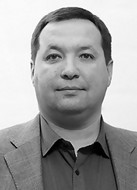Elite WKF karatekas' response rating in different aspects
Фотографии:
ˑ:
Teoriya i praktika fizicheskoy kultury №12 2017, pp.71-72
PhD, Associate Professor D.N. Makaridin
Tyumen State University, Tyumen
The study was designed to analyse the psycho-functional resource mobilisation issues, with WKF karate competitors taken for the case study. Rated and analysed in the study was a variety of the athletes’ responses ranked by importance for the competitive performance. A special priority in the study was given to the individual psycho-functional resource mobilisation capacity ranked among the key competitive success factors in particular and the key element of the individual performance on the whole. Every athlete shall take persistent efforts to mobilise and employ the own psycho-functional resource in to complement and bolster the sport techniques, tactics and individual physical qualities improvement efforts.
The study was designed to rate a variety of the elite athletes’ responses including the complex sensomotor response rate; simple visual-motor response rate; and the simple audio-motor response rate. Subject to the study were the members of the national karate team qualified Masters of Sports and World Class Masters of Sports. The study was timed to the precompetitive training period prior to a top-ranking international sport event. The study data and analyses showed the need in the athletes’ psycho-functional resource rating studies required for the training process customisation to the individual traits and qualities.
Keywords: mental resources, competitive performance, simple and complex response rates, competitive karate.
References
- Grigoryants I.A. Psikhologicheskie rezervy sportivnogo masterstva [Psychological reserves of sport skills]. Teoriya i praktika fiz. kultury, 2003, no. 7, pp. 21-24.
- Kitaeva M.V. Psikhologiya pobedy v sporte [Psychology of winning in sport. Study guide]. Rostov-on-Don: Fenix publ., 2006, 208 p.
- Makaridin D.N. Psikhologicheskie rezervy sportivnoy deyatelnosti edinobortsev (na primere karate WKF) [Mental reserve management in competitive martial arts: case study of WKF karate]. Teoriya i praktika fiz. kultury, 2016, no. 12, pp. 65-67.
- Zagvyazinskiy V.I., Manzheley I.V. Obshchaya panorama pedagogicheskogo issledovaniya po problemam fizicheskoy kul'tury i sporta [Pedagogical research in physical education and sport: Overview]. Teoriya i praktika fiz. kultury, 2016, no. 3, pp. 3-5..
- Soloshenko N.B., Alekseeva M.V., Makaridin D.N. Mekhanizmy realizatsii upravlencheskikh resheniy po sovershenstvovaniyu uchebno-trenirovochnogo protsessa sportivnykh shkol g. Tyumen [Management solutions implementation arrangements to improve learning and training process at Tyumen sports schools]. Teoriya i praktika fiz. kultury, 2015, no. 12, pp. 10-12.




 Журнал "THEORY AND PRACTICE
Журнал "THEORY AND PRACTICE